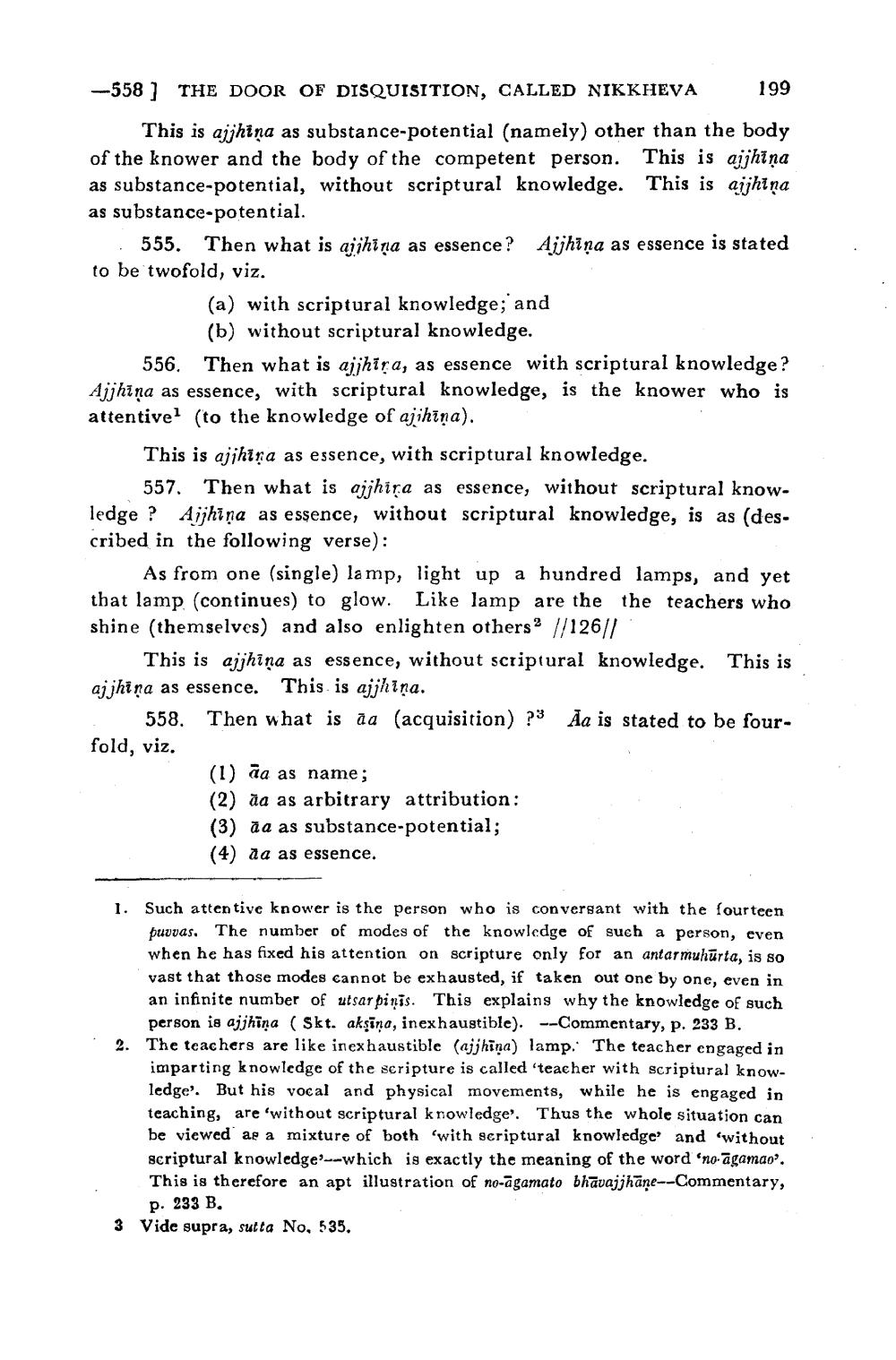________________
--558] THE DOOR OF DISQUISITION, CALLED NIKKHEVA
This is ajjhina as substance-potential (namely) other than the body of the knower and the body of the competent person. This is ajjhina as substance-potential, without scriptural knowledge. This is ajjhina as substance-potential.
199
555.
Then what is ajjhina as essence? Ajjhina as essence is stated to be twofold, viz.
(a) with scriptural knowledge; and
(b) without scriptural knowledge.
556. Then what is ajjhira, as essence with scriptural knowledge? Ajjhina as essence, with scriptural knowledge, is the knower who is attentive1 (to the knowledge of ajihina).
This is ajjhina as essence, with scriptural knowledge.
557. Then what is ajjhira as essence, without scriptural knowledge? Ajjhina as essence, without scriptural knowledge, is as (described in the following verse):
As from one (single) lamp, light up a hundred lamps, and yet that lamp (continues) to glow. Like lamp are the the teachers who shine (themselves) and also enlighten others2 //126//
This is ajjhina as essence, without scriptural knowledge. This is ajjhina as essence. This is ajjhina.
558. Then what is aa (acquisition) ? Aa is stated to be fourfold, viz.
(1) aa as name;
(2) aa as arbitrary attribution:
(3) aa as substance-potential; (4) aa as essence.
1. Such attentive knower is the person who is conversant with the fourteen puvvas. The number of modes of the knowledge of such a person, even when he has fixed his attention on scripture only for an antarmuhurta, is so vast that those modes cannot be exhausted, if taken out one by one, even in an infinite number of utsar pinis. This explains why the knowledge of such person is ajjhina (Skt. aksīna, inexhaustible). --Commentary, p. 233 B.
2. The teachers are like inexhaustible (ajjhina) lamp. The teacher engaged in imparting knowledge of the scripture is called 'teacher with scriptural knowledge'. But his vocal and physical movements, while he is engaged in teaching, are 'without scriptural knowledge'. Thus the whole situation can be viewed as a mixture of both with scriptural knowledge' and 'without scriptural knowledge--which is exactly the meaning of the word 'no-agamao". This is therefore an apt illustration of no-agamato bhavajjhāne--Commentary, p. 233 B.
3 Vide supra, sutta No. 535.




